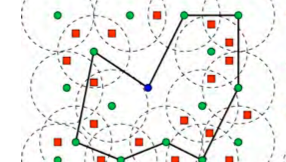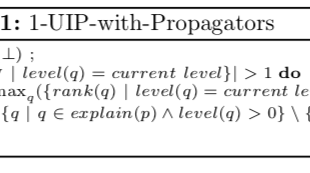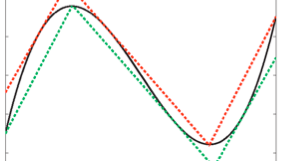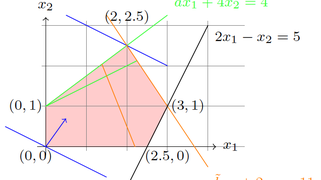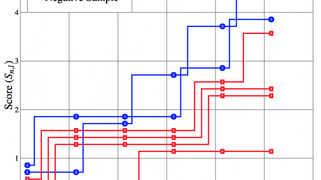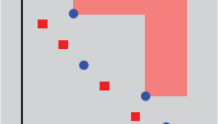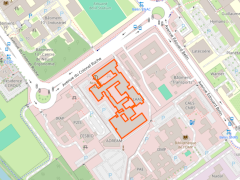Operations Research, Combinatorial Optimization and Constraints
- roc -
Team ROC works on combinatorial optimisation problems, and on the algorithmic methods to solve them, bridging Operations Research and Artificial Intelligence.
Our Research
Combinatorial Optimization Problems
Team ROC designs and studies various models and algorithms for several classes of combinatorial optimization problems, such as scheduling, vehicle routing, and resource allocation problems.
Computational Methods
We contribute to the design of efficient solving methods for hard combinatorial optimization problems. In particular, we design algorithms and models for constraint programming, mixed-integer linear programming and hybrid approaches.
Real-world Applications
We aim at confronting the proposed methods to the real world by considering industrial engineering, human factors and environmental issues. We develop industrial applications in various domains including transportation, manufacturing and supply chain management, energy management, aeronautics and space
Focus
Structural Properties and approximations with guarantees
We carry out research to establish structural properties and performance-guaranteed approximations of combinatorial optimization and other computing problems. This include complexity and approximability analysis, theoretical comparisons of linearization schemes, piecewise linear and polynomial approximations, polyhedral and graph theoretical studies
Optimization under uncertainty
The parameters of an optimization problems are often subject to uncertainties of all kinds. The team is interested in robust combinatorial optimization problems, especially scheduling problems under uncertainty. One avenue of research consists in proposing flexible solution structures for the proactive consideration of disruption by facilitating the repairing of computed solutions, notably by predetermining the feasibility of permutations within task sequences. The teams also contributes to advances in robust discrete optimization for scheduling
Combinatorial Optimization & Learning
We explore the relationship between combinatorial optimization and learning techniques in two complementary ways. On the one hand, we seek to integrate learning mechanisms within tree search for problem solving. On the other hand, in a dual way, other work aims at improving machine learning techniques by integrating combinatorial optimization methods.
Multi-Agent & Multi-Objective Optimization
The team is interested in the cooperative, decentralized and distributed aspects of decisions, related to the presence of several decision centers that interact in a number of applications. The team conducts research in multi-objective mathematical programming. Within multi-agent optimisation problems, the team is also exploring the search for equilibrium solutions within the meaning of game theory that are also non-Pareto dominated. Finally, the team is interested in distributed combinatorial optimization, especially for reasons of security or respect of private data. Interdisciplinary researches on human factors in combinatorial optimization have also been carried out.
Head
Scientific executive
Postdoctoral
PhD
Intern
PhD guest
Partnership guest
Visitor
Latest publications
2025
Journal articles
Conference papers
Preprints, Working Papers, ...
2024
Journal articles
Conference papers
Other documents
Preprints, Working Papers, ...
2023
Journal articles
Book sections
Conference papers
Master thesis
Reports
Preprints, Working Papers, ...
2022
Journal articles
Conference papers
Other documents
Proceedings
Preprints, Working Papers, ...
2021
Journal articles
Conference papers
Preprints, Working Papers, ...
2020
Journal articles
Conference papers
Other documents
Reports
Some public source codes and softwares from the group's research.
Tempo, a hybrid CP/SAT solver
https://gitlab.laas.fr/roc/emmanuel-hebrard/tempo
BDDEncoding, a python library to learn a Boolean decision diagrams via MaxSAT
https://gitlab.laas.fr/roc/hao-hu/bddencoding
Blossom, an algorithm for computing optimal decision trees
https://gitlab.laas.fr/ehebrard/blossom
ChromSAT, a CDCL-based graph coloring solver
https://gitlab.laas.fr/roc/emmanuel-hebrard/chromsat
fairCORELS, a Python library for learning fair and interpretable models
https://github.com/ferryjul/fairCORELS
FAIRScoringSystems, a framework to generate interpretable and fair AI models for multi-class classification
https://gitlab.laas.fr/roc/julien-rouzot/fairscoringsystemsv0
LNS-MMRCPSP, a CPOptimizer-based approach to solve uncertain multi-mode project scheduling problems
https://gitlab.laas.fr/roc/christian-artigues/lns-mmrcpsp
MaxSAT Decision Trees, a python library to learn decision trees from via MaxSAT
https://gitlab.laas.fr/roc/hao-hu/maxsat-decision-trees
MCTS, a C++ library to design Monte-Carlo Tree Search algorithms guided by reinforcement learning for combinatorial problems
https://gitlab.laas.fr/roc/valentin-antuori/MCTS
Mistral, a constraint programming solver
https://github.com/ehebrard/Mistral-2.0.git
Two Stage Scheduling Using POGS, a python CPOptimizer-based approach to robust scheduling via compilation into "permutable operation groups"
https://gitlab.laas.fr/roc/louis-riviere/two-stage-scheduling-using-pogs
THESIS / HDR
2024
2023
2022
Hao Hu, Thèse: Interpretable Machine Learning Models via Maximum Boolean Satisfiability
Tom Portoleau, Thèse: Représentations discrètes pour l’ordonnancement et la planification robustes
2019
2018
Idir Hamaz, Thèse: Méthodes d'optimisation robuste pour les problèmes d'ordonnancement cyclique
Pierre Coupechoux, Thèse: Codes et jeux de soustraction et de poursuite dans les graphes
Ulrich Matchi Aïvodji, Thèse: Technologies respectueuses de la vie privée pour le covoiturage
2017
Yun He, Thèse: Problèmes de tournée avec prise en compte explicite de la consommation d'énergie
2016
Margaux Nattaf, Thèse: Ordonnancement sous contraintes d’énergie
Nadia Chaabane, Thèse: Recherche de flots stables dans des réseaux de transport multi-agents
2015
DEPARTMENT
REJOINDRE
Notre équipe de recherche
Pour plus d’informations sur les offres d’emploi, vous pouvez contacter
